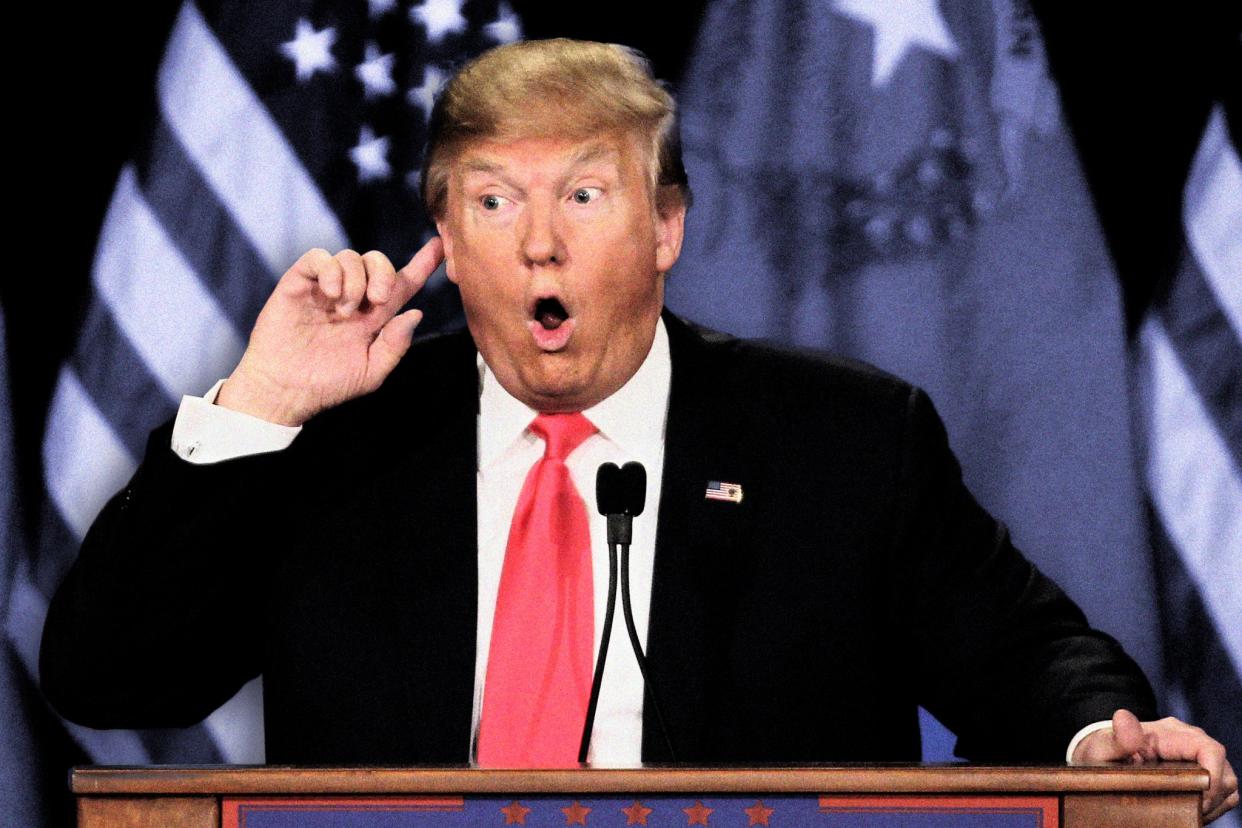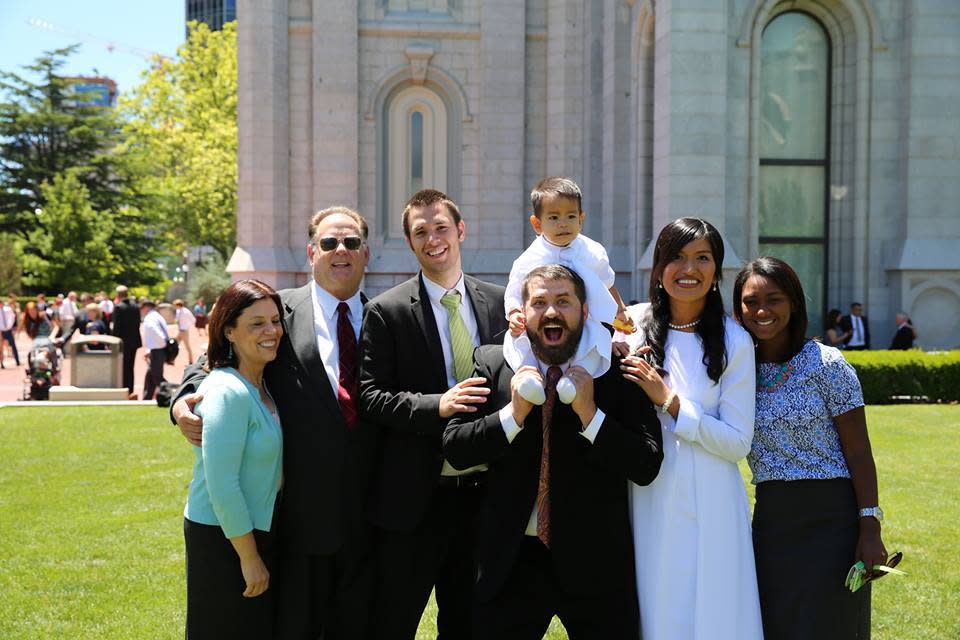The contrarians: They didn’t vote for Trump, but they would now

David Kord Murray, the owner of a small business-finance company in California, admits he likes to be different — “to take the contrary position.” Yet even he is surprised to have reached his latest conclusion — that while he strongly supported Hillary Clinton during the campaign, and voted for her without reservation, he now wishes he had cast that vote for Donald Trump.
“I like what he’s doing, and I wish I had voted for him,” he says. Not having supported Trump sooner, he says, makes him “feel like a coward.”
A lot has been written since Election Day about people who didn’t vote at all and wish they had because they were unhappy with the results. And a lot more has been written about those who cast their vote for the winner and came to regret it. (There is even a popular Twitter account called @Trump_Regrets with more than a quarter of a million followers.) And there is talk of hushed Trump support, people who voted for him but don’t admit that to pollsters or their social circles.
But what of those who might be called “Donny-Come-Latelys”? People who did not support the candidate on Nov. 8, but now, 100 days in, find that they do?
There are probably not a lot of them. No national polls count them in particular, but Trump’s historically low approval rating indicates there has not been a surge of conversions. They are hard to find for interviews. When Yahoo put out an invitation on social media there were far more jokes about unicorns than there were people raising their hands. “I don’t believe such a person could possibly exist” was one typical response.
They do. And their reasons for changing their minds provide a glimpse at how the messages of this young administration are being heard by one slice of the population.

Notably, most of those who shifted did so not because they came to look more favorably upon Trump but because they now look less favorably upon his opposition. As Dennis Dayley, a retiree (and Clinton voter) outside of Seattle, wrote to the Seattle Times a few days after the inauguration: “I really thought the election was between the lesser of two evils. Now, due to the negative coverage of Trump and the obvious slant against him, much of it false or misleading, the news media has successfully made a convert out of me. Congratulations! You have turned me into a Trump supporter!”
For Matt Green, a self-described libertarian in Dallas who didn’t vote at all, because he “disliked everyone” (including the Libertarian candidate), it was both the press coverage and the constant protests that changed his mind.
“The media and the left kept calling those who voted for Trump ‘racist’ and ‘misogynistic,’” he said. “I know the people who voted for him are good people. They cast their votes because they were pro-life, or pro-Second Amendment, but not because they had malice in their hearts toward immigrants. I know these people, and if I have to take sides I’m going to side with the people who I know.”
At the time, Green was an editor of a conservative website called the Rouser, and 10 days after Election Day he wrote a column for that site titled “I Didn’t Vote for Trump, But I Wish I Had.” In it he wrote, “Seeing the outrage and general disregard for decent human behavior from the left, it has become clear to me that, despite the moral downfalls of this narcissistic man, he is the best choice to take control of this country.”
For Jacob IsBell, it was all of the above — plus the violence. A musician and podcaster from Albuquerque, he did not vote the national ticket in November, though he did vote in the state and local elections. Then, in the days afterward, he watched as anti-Trump protests turned violent. When Milo Yiannopoulos was not allowed to speak in Berkeley, that was IsBell’s turning point. “Not because I support anything the guy was going to say, but I support his right to say it,” he says. “I find myself so bothered with what I view as the violent assault against free speech. It was a galvanizing event. I thought, ‘If this is what the opposition is, then I’ll pick a side.’”
On his next podcast, on Feb. 3, he spent 12 minutes on the topic “I wish I voted for Trump.” (The video of his podcast has had 42 views as of the time of this writing, two of which were by this reporter.) “Is there any greater endorsement than to be fought against by all those that are part of the establishment?” he began.
These new converts can each give you a list of things they don’t like about the man they now tentatively support. “I hate what he’s doing bringing back coal jobs that we don’t need, I hate that Kushner is in charge of all those things, I hate his general demeanor and attitude. And the Twitter stuff, it’s annoying and childish,” Green says.
“I’m very much opposed to a wall,” says IsBell, who is married, he says, to “a legal immigrant from Peru.” His four brothers are married to “legal immigrants from Mexico, the Philippines, and the Dominican Republic, and they have all learned Spanish and their children speak Spanish, except my brother whose wife is Filipina, he speaks Estonian, go figure.”
“I disapprove of his warlike actions in Syria,” IsBell continues. “I recognize that Donald Trump himself is a very arrogant, brash person. Should I go on?” Still, he says, the disapproval is “outweighed more and more by my disgust with his opposition.”

Murray, the California business owner, has his list of disagreements too. They are all the reasons he did not vote for Trump in the first place. “I voted for Hillary,” he says. “I think she would have been an excellent administrator and that she had, perhaps, the best résumé of any candidate in my lifetime. My concern about Trump was his lack of government experience as well as his lack of political experience, his inability to unite and ‘play politics.’
“I thought Obama did a great job,” Murray continues. “I was proud to call him my president. He had, and has, class, grace and a deep intellect. But he divided us, and the result is Trump. I’m not proud of him and his ego. But I believe the primary role of the president is as chief executive, and the primary responsibility is economic. I think Trump can make America great in terms of economics.”
And economics are most of his reasons for shifting his support. “Deregulation of business. Smaller government. Self-reliance. A respect for the hardworking women and men that built this country, and don’t want their paychecks supporting political institutions that run counter to their beliefs,” he says. As a small-business owner he believes Trump will — already has — “cut through the regulation that is killing me and my customers. I agree there should be business regulation, but it’s reached levels where it’s ridiculous.”
Still, he says, that might not have been enough to change his mind toward Trump if not for the “nastiness” of those who oppose him.
“The anti-Trump group is extremely vocal, and they don’t understand the other side,” he says. “They just can’t fathom why anybody would support Trump, and I find that frustrating and shortsighted. The anti-Trump movement seems elitist, entitled and incredibly closed-minded. Intolerance is intolerance. The Trump side seems more tolerant to me.”
He knows many will react to his opinion by calling him all sorts of names. By doing so, he says, “you’re making my point for me.”
Read more from Yahoo News’ coverage of Trump’s first 100 days:
What Trump has done for, and to, the environment in his first 100 days
The Ever-Trumpers: Revisiting his backers from 2016, we find they still like him
Fact check: The White House’s claims about Trump’s first 100 days
Trump foreign policy at 100 days: The downside of unpredictability
Twitter, Mar-a-Lago and Obama bashing: The 45th president’s 100 days of norm-busting
Photos: From inauguration to 100th day — President Trump’s rocky ride in pictures


